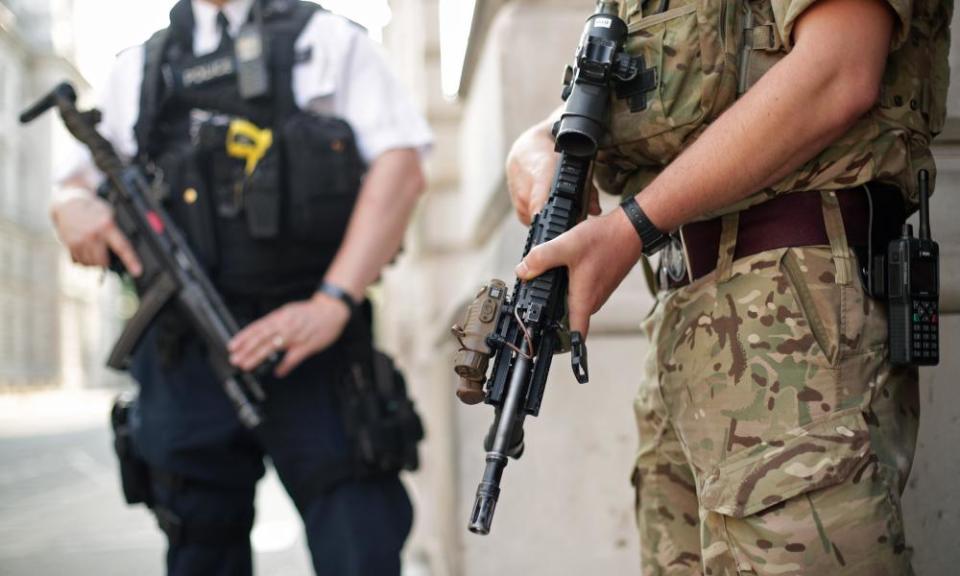Police dismiss idea of soldiers on UK streets to enforce Covid rules

Police have dismissed the prime minister’s offer of military help to enforce the new coronavirus crackdown.
Chief constables made it clear it would not be needed, and leaders of rank-and-file officers said it had not been asked for in talks between police and government about how the tougher measures would be enforced.
Martin Hewitt, chair of the National Police Chief’s Council (NPCC), said: “Policing is a unique role and any military support must be assessed very carefully.
“At the moment, no military involvement is necessary, nor do we anticipate this will be needed.”
Boris Johnson’s suggestion of military involvement in enforcing the new rules was also shot down by the Police Federation. It represents rank-and-file officers, whom Johnson’s administration has been keen to keep onside after cuts led to a fractious relationship between the government and police.
John Apter, the national chair of the Police Federation of England and Wales, said the military was “not what policing has asked for and not what it needs”.
Apter, whose organisation represents 120,000 officers, said: “The announcement from the prime minister has been seized by some as a suggestion that the military will be on streets helping the police to enforce Covid regulations. This is not what policing has asked for and not what it needs.
“This is an ever-changing situation and police officers will continue to do an incredible job at adapting quickly.”
The military can be called in to help police via a plan called Operation Temperer, which was used in 2017 after the Manchester terror attacks when the UK terrorist threat was raised to its maximum level.
The idea is that troops would take over roles that do not involve contact with the police or use of police powers, such as static guard duties outside embassies and iconic sites. That then frees up armed police and other officers.
In the commons Johnson told MPs: “We will provide the police and local authorities with the extra funding they need, a greater police presence on our streets, and the option to draw on military support where required to free up the police.”
In truth each of the 43 forces in England and Wales will make decisions according to their own priorities, meaning a postcode lottery of enforcement is an inevitable result of how policing is organised.
Officers will be asked to work overtime hours to provide an extra police presence on the streets to chase late diners, drinkers and those who are bare faced in settings where they should wear face coverings.
Police and local councils will have a pot of £60m provided by central government.
Hewitt sounded a tougher tone from police chiefs, who have until now stressed encouragement over enforcement. “The time for encouraging those who knowingly flout the rules with no sense of guilt about the risks they are presenting has passed,” he said.
The NPCC said patrols would be stepped up, with the government keen for police to be more visible in enforcing the tougher measures.
Hewitt encouraged breaches to be reported to police but there is a wariness among some police chiefs of any expectationthey should chase every report. Crime levels have risen since the full lockdown was eased, with frontline officers getting busier.
David Jamieson, the police and crime commissioner for the West Midlands, warned that officers were already under strain. “In reality this will be paying for overtime within our existing staff. With 2,000 fewer officers than we had in 2010, there is only so much that you can expect a limited number of officers to do. Expecting already under pressure officers to do more and more could lead to burnout.”

